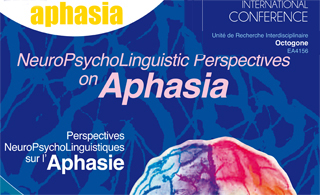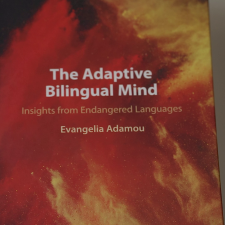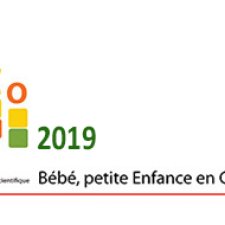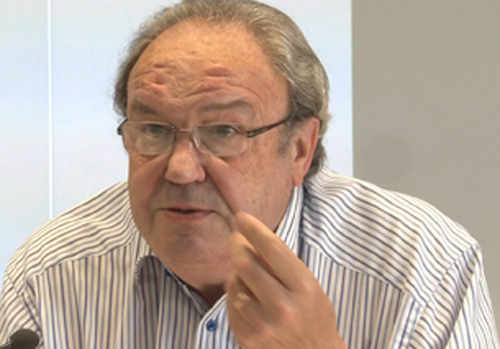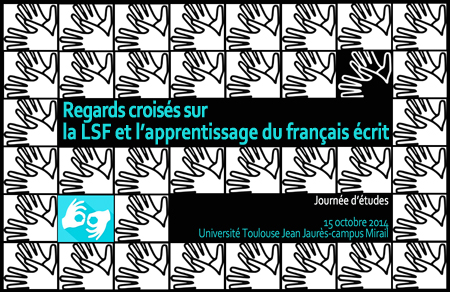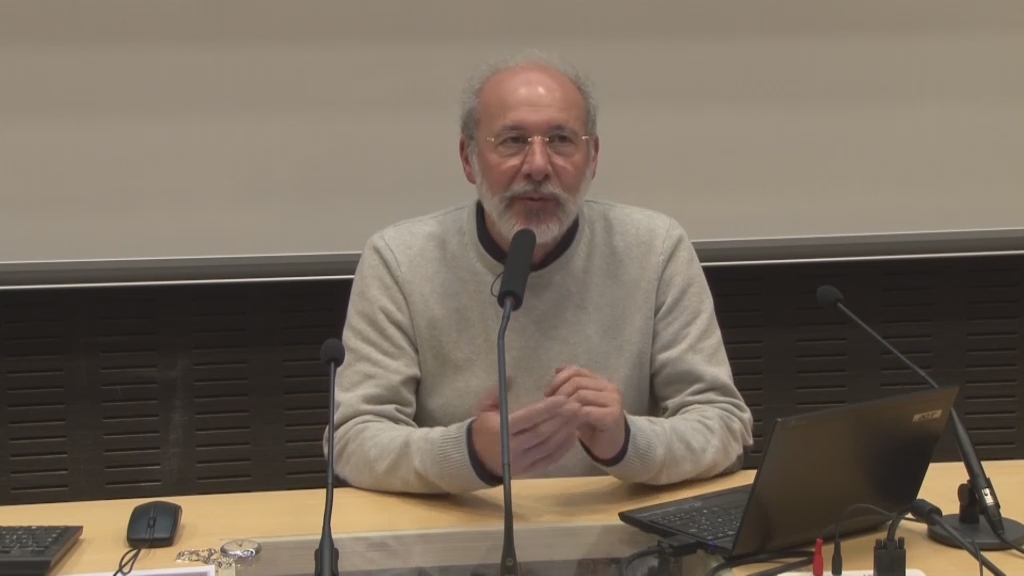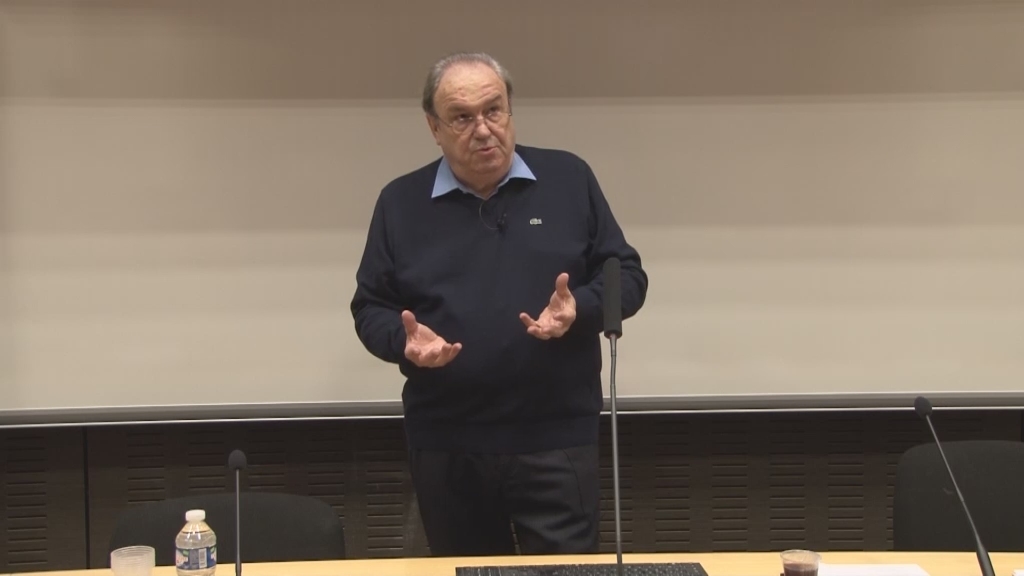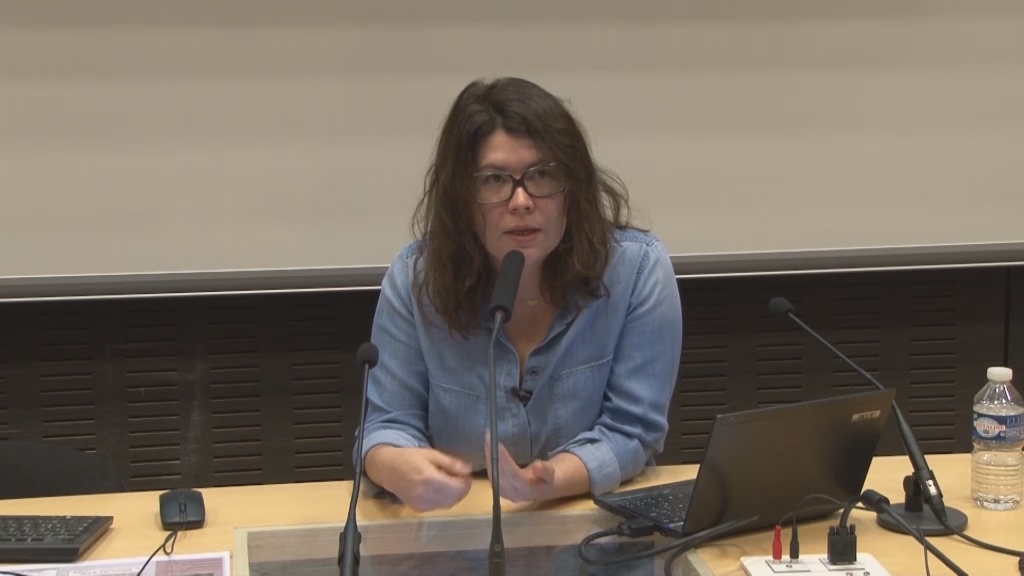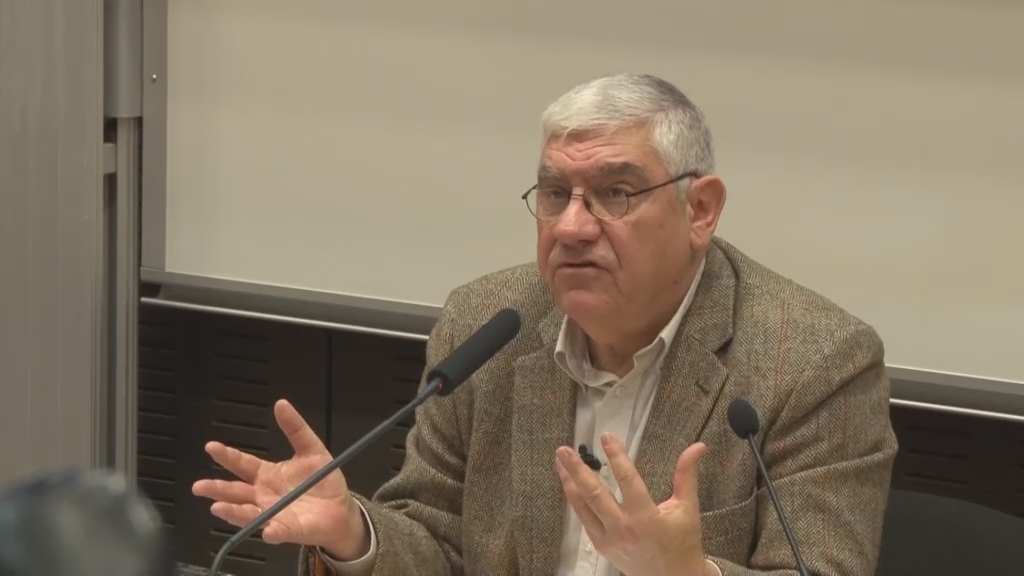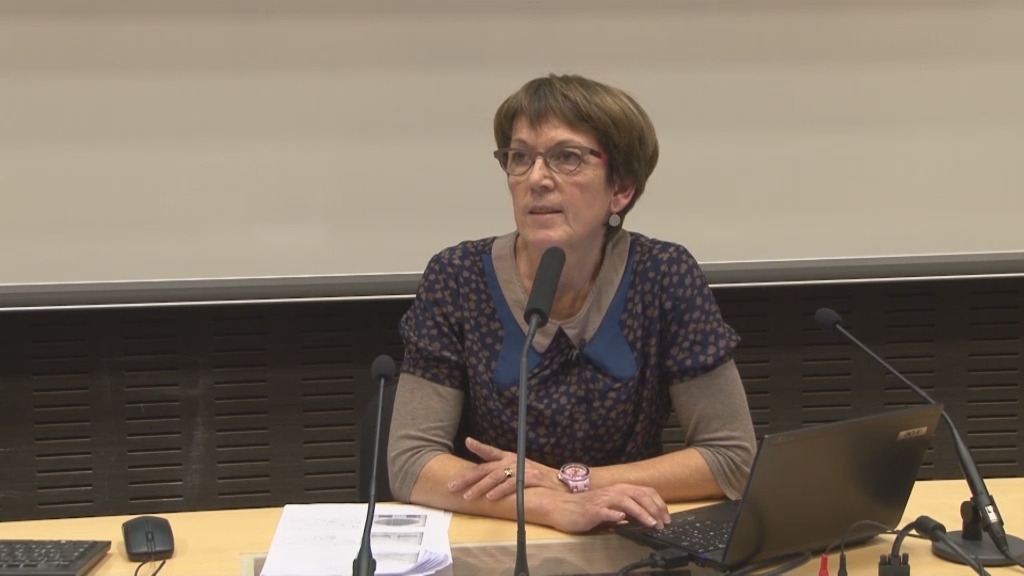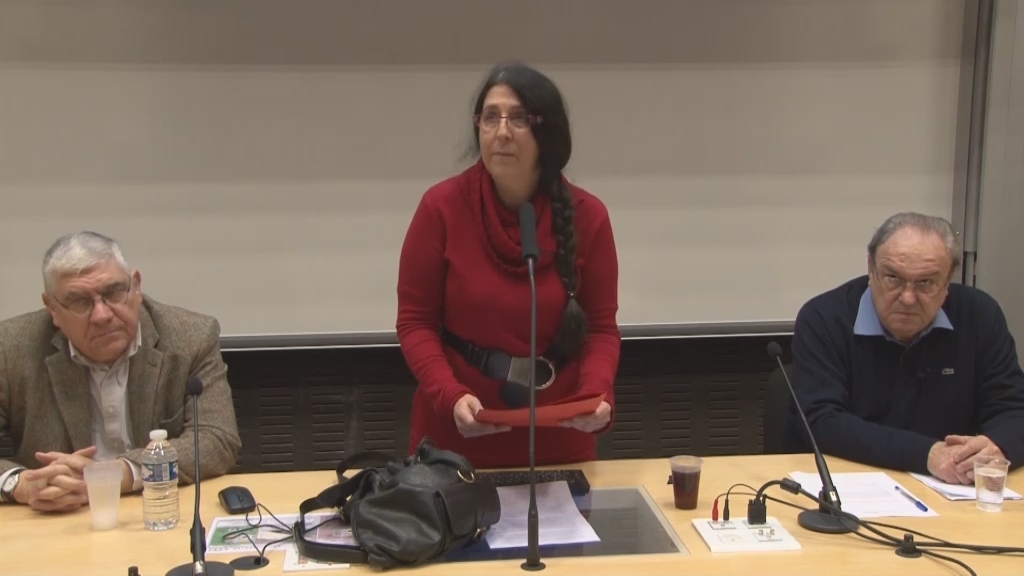Notice
Phonological and phonetic encoding and impairment / Marina Laganaro
- document 1 document 2 document 3
- niveau 1 niveau 2 niveau 3
Descriptif
Phonological and phonetic encoding and impairment / Marina Laganaro, in colloque international "Perspectives neuropsycholinguistiques sur l'aphasie - NeuroPsychoLinguistic Perspectives on Aphasia", organisé par l'Unité de Recherche Interdisciplinaire Octogone de l'Université Toulouse II-Le Mirail (France). Toulouse, 21-23 juin 2012.
Current psycholinguistic models of speech production suggest independent organization of phonological and phonetic encoding processes (Levelt, Roelofs, & Meyer, 1999). In these symbolic/abstractionist models an abstract linguistic phonological form is planned (phonological encoding) before a more specified motor plan is encoded (phonetic encoding). In the neurolinguistic tradition, phonological errors produced by aphasic patients are thought to originate during the level of abstract linguistic encoding processes; by contrast, impairment at the level of phonetic encoding is thought to give rise to the pattern of errors observed in apraxia of speech (Blumstein, 1990; Code, 1998; Ziegler, 2008, 2009). These positions contrast with recent research pointing to an interaction between phonological and phonetic encoding processes and to the difficulty of clearly distinguish phonological from phonetic impairment.
Here we will first review the empirical psycholinguistic, neurolinguistic and neuroimaging arguments favoring separate phonological and phonetic processes and time‐course. In particular, we will focus on the interpretation of the origin of phonological paraphasias (Kohn and Smith, 1994; Laganaro & Zimmermann, 2010; Schwartz et al., 2004) and on the time‐course of disruption during single word production (Laganaro et al., 2009; 2011). Then, we will discuss the difficulty of teasing out phonological and phonetic disorders in clinical practice. We will present empirical arguments in favour of an interaction between phonological and phonetic encoding processes (Baese‐Berk & Goldrick, 2009, McMillan, Corley & Lickley, 2009) and to overlapping patterns of impairments (Perret et al., to appear; Laganaro, subm.). Finally, we will discuss the consequences of interactive encoding processes on the definition of patterns of impairment.
Thème
Documentation
Bibliographie
Baese‐Berk, M., & Goldrick, M. (2009). Mechanisms of interaction in speech production. Language and Cognitive Processes, 24, 527‐554.
Blumstein, S. (1990). Phonological deficits in aphasia: Theoretical perspectives. In A. Caramazza (Ed.), Cognitive neuropsychology and neurolinguistics, Hillsdalle: Lawrence Erlbaum, pp. 33‐53.
Code, C. (1998). Major review: Models, theories and heuristics in apraxia of speech. Clinical Linguistics and Phonetics, 12, 47–65.
Kohn, S.E. & Smith, K.L. (1994). Distinction between two phonological output deficits. Applied Psycholinguistics, 15, 75‐95.
Laganaro, M. (2012). Patterns of impairments in J. Speech, AoS and mechanisms of interaction between phonological and phonetic encoding, Language, Hearing Research, 55, 1535-43.
Laganaro, M., Morand, S. Michel, CM, Spinelli, L. & Schnider, A. (2011). ERP correlates of word production before and after stroke in an aphasic patient. Journal of Cognitive Neuroscience, 23, 374‐381.
Laganaro, M., Morand, S. & Schnider, A. (2009). Time course of evoked‐potential changes in different forms of anomia in aphasia. Journal of Cognitive Neuroscience, 21(8), 1499‐ 1510.
Laganaro, M. & Zimmermann, C. (2010). Origin of phoneme substitution and phoneme movement errors in aphasia. Language and Cognitive Processes, 25, 1‐37.
Levelt, W.J. M. Roelofs, A. & Meyer, A.S. (1999). A theory of lexical access in speech production. Behavioral and Brain Sciences, 22, 1‐75.
McMillan, C.T., Corley, M. & Lickley, R.J. (2009). Articulatory evidence for feedback and competition in speech production. Language and Cognitive Processes, 24, 44‐66.
Perret, Cyril, Schneider, L., Dayer, G. & Laganaro, Marina, (2012), Convergences and divergences between Neurolinguistic and Psycholinguistic data in the study of phonological and phonetic encoding: a parallel investigation of syllable frequency effects in brain‐damaged and healthy speakers. Language and Cognitive Processes, iFirst, 1-20. (En ligne : Perret-et-al.2013.
Schwartz, M.E., Wilshire, C.E., Gagnon, D.A. & Polansky, M. (2004). Origin of non‐word phonological errors in aphasic picture naming. Cognitive Neuropsychology, 21, 159‐186.
Ziegler, W. (2008). Apraxia of speech. In: Goldenberg, G. and Miller, B. L., Neuropsychology and Behavioral Neurology, Edinburgh: Elsevier, ed. 3, p. 269‐286..
Ziegler W. (2009). Modelling the architecture of phonetic plans: Evidence from apraxia of speech Language and Cognitive Processes, 24(5): 631‐661, 2009.
> Voir aussi la bibliographie générale à télécharger dans l'onglet "Documents" de la séquence vidéo d'ouverture du colloque.
Dans la même collection
-
Perspectives neuropsycholinguistiques sur l'aphasie - NeuroPsychoLinguistic Perspectives on Aphasia…
Perspectives neuropsycholinguistiques sur l'aphasie - NeuroPsychoLinguistic Perspectives on Aphasia : ouverture. Colloque international organisé par l'Unité de Recherche Interdisciplinaire Octogone de
-
Entre dysfonctionnement et normalité : une perspective à partir de données anatomo‐fonctionnelles o…
DuboisCyril Michel RobertLahyaniSaoussanEntre dysfonctionnement et normalité : une perspective à partir de données anatomo‐fonctionnelles obtenues auprès de sujets sains et de sujets aphasiques / Saoussan Lahyani, Cyril Dubois. In
-
A « subtle phonetic deficit » in fluent aphasia ? An acoustic and perceptual study / Anna Marczyck
MarczyckAnnaA « subtle phonetic deficit » in fluent aphasia ? An acoustic and perceptual study / Anna Marczyck
-
Pour une approche dynamique des réponses aphasiques obtenues en dénomination d’images : apport de l…
TranThi MaiPour une approche dynamique des réponses aphasiques obtenues en dénomination d’images : apport de l’analyse qualitative / Thi-Mai Tran, in "Perspectives neuropsycholinguistiques sur l'aphasie -
-
Age of acquisition affects word retrieval in spontaneous speech produced by patients with Alzheimer…
GayraudFrédériqueBarkatMélissaAge of acquisition affects word retrieval in spontaneous speech produced by patients with Alzheimer's disease / Frédérique Gayraud, Mélissa Barkat-Defradas. In "Perspectives neuropsycholinguistiques
-
Compounding and lexical recursion in aphasia and in Alzheimer’s disease / Zoltán Bánréti
BánrétiZoltánCompounding and lexical recursion in aphasia and in Alzheimer’s disease / Zoltán Bánréti. In "Perspectives neuropsycholinguistiques sur l'aphasie - NeuroPsychoLinguistic Perspectives on Aphasia",
-
Morpho-syntactic processing of regular and irregular formations in Arabic aphasia / Tariq Khwaileh
KhwailehTariqMorpho-syntactic processing of regular and irregular formations in Arabic aphasia / Tariq Khwaileh. In "Perspectives neuropsycholinguistiques sur l'aphasie - NeuroPsychoLinguistic Perspectives on
-
German Broca’s and Wernicke’s aphasics display similar deficits in syntactic performance / Eva Wimm…
WimmerEvaGerman Broca’s and Wernicke’s aphasics display similar deficits in syntactic performance / Eva Wimmer. In "Perspectives neuropsycholinguistiques sur l'aphasie - NeuroPsychoLinguistic Perspectives on
-
Violating canonicity in Spanish agrammatism / Silvia Martínez-Ferreiro
Martinez-FerreiroSilviaViolating canonicity in Spanish agrammatism / Silvia Martínez-Ferreiro. In "Perspectives neuropsycholinguistiques sur l'aphasie - NeuroPsychoLinguistic Perspectives on Aphasia", colloque international
-
Sentence comprehension deficits in aphasia : additional insights from impairment-specific assessmen…
HanneSandraSentence comprehension deficits in aphasia : additional insights from impairment-specific assessment / Sandra Hanne.
-
Principles of bilingual aphasia assessment and interpretation of findings / Michel Paradis
ParadisMichelPrinciples of bilingual aphasia assessment and interpretation of findings / Michel Paradis. In "Perspectives neuropsycholinguistiques sur l'aphasie - NeuroPsychoLinguistic Perspectives on Aphasia",
-
Perioperative language assessment in multilingual patients undergoing awake surgery / Barbara Köpke
KöpkeBarbaraPerioperative language assessment in multilingual patients undergoing awake surgery / Barbara Köpke. In "Perspectives neuropsycholinguistiques sur l'aphasie - NeuroPsychoLinguistic Perspectives on
Sur le même thème
-
The Adaptive Bilingual Mind
AdamouEvangeliaLa chercheuse Evangelia Adamou (LACITO) présente son ouvrage "The Adaptive Bilingual Mind" (2021, Cambridge University Press).
-
How prosody helps infants and children to break into communication
GervainJuditThe talk will present four sets of studies with young infants and children to show who prosody helps them learn about different aspects of language, from learning basic word order through
-
"Déficit phonético-phonologique dans l’aphasie vasculaire : Réflexion sur le rôle des structures sy…
Les locuteurs ayant subi un AVC entrainant une aphasie avec deficit (phonetico-)phonologique realisent, en production orale, des paraphasies qui alterent soit la structure syllabique de leur langue
-
Socialisations langagières et inégalités scolaires / Élisabeth Bautier
BautierÉlisabethSous-tendue par la question des inégalités d’apprentissage scolaires et des habitudes langagières de l’école qui sont au cœur de ces inégalités, cette communication porte sur les modes de
-
Jacques Lordat (1773-1870) ou la naissance de la neuropsycholinguistique cognitive. Du vitalisme au…
NespoulousJean-LucJacques Lordat (1773-1870) a fait une exceptionnelle carrière, d’une cinquantaine d’années, à la Faculté de médecine de Montpellier, dont il fut un temps Doyen. Très tôt, il s’intéressa aux troubles
-
Regards croisés sur la LSF et l'apprentissage du français écrit : table ronde
Garcia-DebancClaudineRegards croisés sur la LSF et l'apprentissage du français écrit : table ronde, in Journée d'études organisée conjointement par l'École supérieure du professorat et de l'éducation (ESPE, Toulouse), le
-
07 - Langage et mémoire : les leçons des maladies dégénératives (Crisco)
NespoulousJean-LucFrançoisJacquesJournée d’étude : "Cerveau et Langage", présentée par Jacques FRANCOIS (Université de Caen) et Jean-Luc NESPOULOUS (Toulouse 2 et I.U.F.)
-
02 - La neuropsycholinguistique 150 ans après Paul Broca (Crisco)
Journée d’étude : "Cerveau et Langage", présentée par Jacques FRANCOIS (Université de Caen) et Jean-Luc NESPOULOUS (Toulouse 2 et I.U.F.)
-
05 - Mémoire de travail, fonctions exécutives et aphasie (Crisco)
Journée d’étude : "Cerveau et Langage", présentée par Jacques FRANCOIS (Université de Caen) et Jean-Luc NESPOULOUS (Toulouse 2 et I.U.F.)
-
03 - L’émergence et l’évolution du langage humain du point de vue des neurosciences (Crisco)
Journée d’étude : "Cerveau et Langage", présentée par Jacques FRANCOIS (Université de Caen) et Jean-Luc NESPOULOUS (Toulouse 2 et I.U.F.)
-
06 - Troubles lexico-sémantiques dans l’aphasie : évolution des interprétations (Crisco)
Journée d’étude : "Cerveau et Langage"
-
01 - Ouverture de la journée d'étude : "Cerveau et Langage" (Crisco)
Journée d’étude : "Cerveau et Langage"


